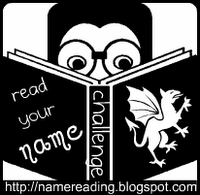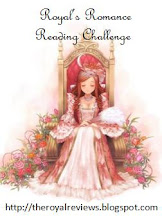1. Tim Winton was twenty-two when his first book was
published and thirty when he completed Cloudstreet. As a
result, he has often been described as one of Australia’s most
precocious writers. Do you think Cloudstreet reflects the
preoccupations of youth?
2. Coastal places, water, fishing and boating often provide both
sources of action and symbolic power in Tim Winton’s work.
How central are they to Cloudstreet? Would you describe
it as a ‘coastal’ novel?
3. Winton has remarked that Australians have become ‘very
suburban’ and ‘don’t know anything about the outdoors. Their
dads and mums did, and their grandparents did. We are only
one generation from the farm, but you’d be surprised at
how little people know.’ Does Cloudstreet celebrate the
‘outdoors’ or the suburbs or both? Do you think it seeks to
remind people of their rural roots?
4. ‘Celebration’ is a word often used to describe Winton’s
themes. He praises ‘ordinary’ people’s lives. What particular
aspects of human existence does Cloudstreet celebrate?
5. Spirituality is explored in Cloudstreet in a variety of ways
and Winton has admitted to religious faith being a powerful
influence on his writing. What do you see as the tenets of his
faith as revealed in this novel?
6. ‘From me to you, the river. In me and you, the river. Of me, and
you, the river.’ (p203) This utterance by Fish is reminiscent of
the signs of the cross as made in Christian prayer. In your
opinion, is Fish praying to the river, to the unseen presence of
God, or to something else entirely?
7. Do you think the differences between Cloudstreet’s two
families, the Pickles and the Lambs, are representative of two
different strands in the cultural make-up of white Australians?
8. The ‘Shifty Shadow’ of fate figures as a potent force in
Cloudstreet. Do you think Winton celebrates or bemoans
its power in people’s lives? How fatalistic do you think his view
of the world is?
9. Cloudstreet demonstrates the ‘brute force’ and originality
of Winton’s language. If you dissect one paragraph you’ll find
that he never uses clichéd similes, verbs or adjectives.
Take this passage from p25: ‘Just near the crest of the hill where
the sun is ducking down, the old flatbed Chev gives up the fight and
stalls quiet. Out on the tray the kids groan like an opera. All around,
the bush has gone the colour of a cold roast ...Birds scuffle out of
sight. There’s no wind, though the Chev gives out a steamy fart.’
In your view, is language like this descriptive and exciting, or
is it at times difficult? Is Winton’s use of language something
that strikes you about his writing, or is it so integral to his
work that you don’t notice how different it is?
10. Cloudstreet is an imaginative flight of fancy which
expects the reader to believe in Fish’s ‘other world’ of water.
How convincingly does Winton make the reader believe that
such things as talking pigs exist?
11. Cloudstreet is set in Perth in the years following
WorldWar11. How much do we learn about the social changes
which were developing at this time from reading the novel?
12. In view of the picture Cloudstreet paints of life in the
fifties, would you describe it as a work of nostalgia? Is it
nostalgic in other ways?
published and thirty when he completed Cloudstreet. As a
result, he has often been described as one of Australia’s most
precocious writers. Do you think Cloudstreet reflects the
preoccupations of youth?
2. Coastal places, water, fishing and boating often provide both
sources of action and symbolic power in Tim Winton’s work.
How central are they to Cloudstreet? Would you describe
it as a ‘coastal’ novel?
3. Winton has remarked that Australians have become ‘very
suburban’ and ‘don’t know anything about the outdoors. Their
dads and mums did, and their grandparents did. We are only
one generation from the farm, but you’d be surprised at
how little people know.’ Does Cloudstreet celebrate the
‘outdoors’ or the suburbs or both? Do you think it seeks to
remind people of their rural roots?
4. ‘Celebration’ is a word often used to describe Winton’s
themes. He praises ‘ordinary’ people’s lives. What particular
aspects of human existence does Cloudstreet celebrate?
5. Spirituality is explored in Cloudstreet in a variety of ways
and Winton has admitted to religious faith being a powerful
influence on his writing. What do you see as the tenets of his
faith as revealed in this novel?
6. ‘From me to you, the river. In me and you, the river. Of me, and
you, the river.’ (p203) This utterance by Fish is reminiscent of
the signs of the cross as made in Christian prayer. In your
opinion, is Fish praying to the river, to the unseen presence of
God, or to something else entirely?
7. Do you think the differences between Cloudstreet’s two
families, the Pickles and the Lambs, are representative of two
different strands in the cultural make-up of white Australians?
8. The ‘Shifty Shadow’ of fate figures as a potent force in
Cloudstreet. Do you think Winton celebrates or bemoans
its power in people’s lives? How fatalistic do you think his view
of the world is?
9. Cloudstreet demonstrates the ‘brute force’ and originality
of Winton’s language. If you dissect one paragraph you’ll find
that he never uses clichéd similes, verbs or adjectives.
Take this passage from p25: ‘Just near the crest of the hill where
the sun is ducking down, the old flatbed Chev gives up the fight and
stalls quiet. Out on the tray the kids groan like an opera. All around,
the bush has gone the colour of a cold roast ...Birds scuffle out of
sight. There’s no wind, though the Chev gives out a steamy fart.’
In your view, is language like this descriptive and exciting, or
is it at times difficult? Is Winton’s use of language something
that strikes you about his writing, or is it so integral to his
work that you don’t notice how different it is?
10. Cloudstreet is an imaginative flight of fancy which
expects the reader to believe in Fish’s ‘other world’ of water.
How convincingly does Winton make the reader believe that
such things as talking pigs exist?
11. Cloudstreet is set in Perth in the years following
WorldWar11. How much do we learn about the social changes
which were developing at this time from reading the novel?
12. In view of the picture Cloudstreet paints of life in the
fifties, would you describe it as a work of nostalgia? Is it
nostalgic in other ways?
Thanks to Penguin Notes for the Discussion Questions


















3 comments:
How is everyone going with this read? I thought last month was bad, but this book is killing me!!!
I'm enjoying it. I like that I can picture where the book is set and what the street/house looks like - I like the Australianism of it. Some of the slang I just get but it's very descriptive in a very Aussie way.
Sorry to say that I am really struggling with this book .... Not the slang but just I am so bored with it and some bits are really confusing !!! ..... But I am not half way through yet so maybe get better !!!
Post a Comment